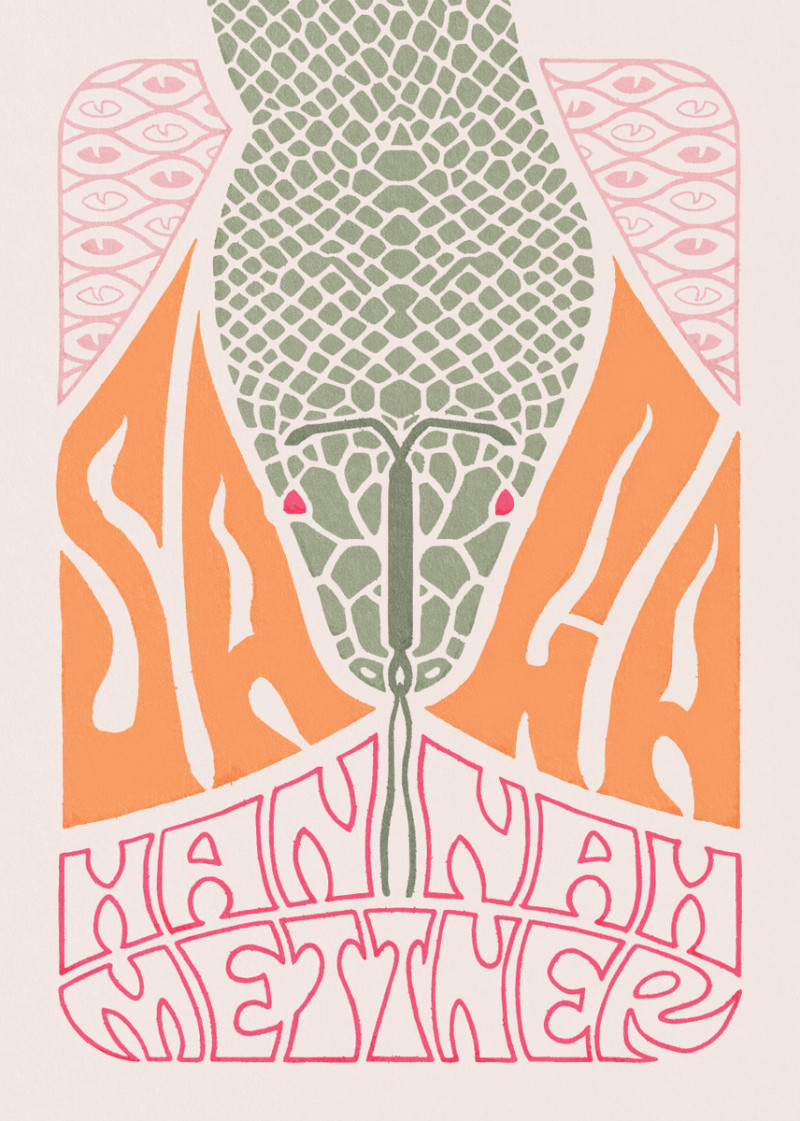Saga
Written by: Hannah Mettner
Te Herenga Waka University Press
Reviewed by: Margaret Austin
If the cover of this book is anything to go by, the poems therein will be puzzling and require more than a second look. So far, so mysterious.
Hannah Mettner introduces herself in her first poem, which is titled after the book and refers to “a long and winding story that neither starts at the beginning nor finishes at the end”. That neatly captures the definition of saga: a story of heroic achievement, especially in Old Norse or Icelandic. Indeed, Mettner’s Scandinavian roots predominate in a sometimes curious, sometimes quizzical, and often humorous fashion.
I don’t usually have much patience with long poems, but Birth Control had me from the start. Its preface references the so-called virgin birth of an anaconda, and here’s our writer visiting the Vatican and worrying about “the small T-shaped thing” inside her as she “walks through the metal detectors and bag check”. Chilling. The rest of the poem is hardly a celebration of women and their ability/duty to bear children, but it’s horrifyingly accurate. “If men can’t explain a thing, they call it witchcraft and destroy it.”
Breakup poem at Auckland Art Gallery Toi o Tāmaki is a delightfully wry reflection on ending a relationship. Backgrounded by Gretchen Albrecht’s and Frida Kahlo’s paintings, our poet can’t contemplate the Frida and Diego kind of love, and comments “This is a high stakes way to break up – being psycho- / analysed via text in a terracotta-red room / with a thousand painted old people looking down on me / from their gold frames.”
I find myself glorying in Butch era, in which Mettner describes herself thus: “One perfect pair of new trousers / and suddenly I’m in charge.” She flirts with the bartender, cats and women flock to her, and her phone autocorrects ‘butch’ to ‘b*tch’, but she don’t care.
Poem while watching the world burn demands my attention even though I wish it didn’t. It’s realistic, frank, and saddeningly prophetic.
This poet has important things to say, and she says them remarkably well – it’s a sagacious accomplishment.
View more reviews:
« Click here


